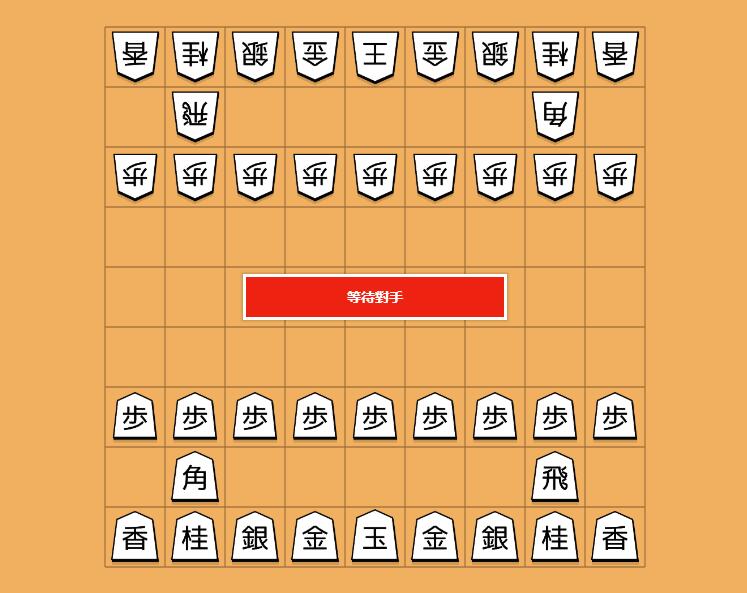
| Online Judge | Online Exercise | Online Teaching | Online Contests | Exercise Author |
|
F.A.Q Hand In Hand Online Acmers |
Best Coder beta VIP | STD Contests DIY | Web-DIY beta |
False God
Time Limit: 2000/1000 MS (Java/Others) Memory Limit: 262144/262144 K (Java/Others)Total Submission(s): 33 Accepted Submission(s): 13
Problem Description
You are facing an endgame of Shogi.

You have only one Kin(金将). However, your opponent has n Fu(步兵).
The rule of this game is as following.

If Kin is at (x,y), it can move to one of the following positions in one step: (x+1,y),(x+1,y+1),(x,y+1), (x-1,y+1),(x-1,y),(x,y-1).

If Fu is at (x,y), it can only move to (x,y-1) in one step.
Now you know the initial position of your Kin and your opponent’s Fu. Each turn, you move your Kin first and then all Fu will move one step.
When you are moving Kin, you can defeat the Fu at that position. If one Fu moves one step and meets Kin, your opponent is also defeated.
To win this game, you want to defeat Fu as many as possible. Now Chino wonders the maximum count of Fu that will be defeated. Can you help cute Chino?

You have only one Kin(金将). However, your opponent has n Fu(步兵).
The rule of this game is as following.

If Kin is at (x,y), it can move to one of the following positions in one step: (x+1,y),(x+1,y+1),(x,y+1), (x-1,y+1),(x-1,y),(x,y-1).

If Fu is at (x,y), it can only move to (x,y-1) in one step.
Now you know the initial position of your Kin and your opponent’s Fu. Each turn, you move your Kin first and then all Fu will move one step.
When you are moving Kin, you can defeat the Fu at that position. If one Fu moves one step and meets Kin, your opponent is also defeated.
To win this game, you want to defeat Fu as many as possible. Now Chino wonders the maximum count of Fu that will be defeated. Can you help cute Chino?
Input
The first line contains one integer T (1 ≤ T ≤ 10) denoting the number of testcases.
For each testcase,
The first line contains two integers $x_0,y_0$ (|$x_0$|,|$y_0$|≤ 1000000000) denoting the initial position for Kin.
The second line contains one integer n (1 ≤ n ≤ 1000) denoting the number of Fus your opponent has.
The next n lines each contains two integers $x_i,y_i$ (|$x_i$|,|$y_i$|≤ 1000000000) denoting the position of Fu i (1 ≤ i ≤ n).
It is guaranteed that $(x_i,y_i) \neq (x_j,y_j)$ for all pairs of i,j satisfying 0 ≤ i < j ≤ n.
It is guaranteed that $\sum$n ≤ 5000.
For each testcase,
The first line contains two integers $x_0,y_0$ (|$x_0$|,|$y_0$|≤ 1000000000) denoting the initial position for Kin.
The second line contains one integer n (1 ≤ n ≤ 1000) denoting the number of Fus your opponent has.
The next n lines each contains two integers $x_i,y_i$ (|$x_i$|,|$y_i$|≤ 1000000000) denoting the position of Fu i (1 ≤ i ≤ n).
It is guaranteed that $(x_i,y_i) \neq (x_j,y_j)$ for all pairs of i,j satisfying 0 ≤ i < j ≤ n.
It is guaranteed that $\sum$n ≤ 5000.
Output
One line for each testcase with one integer denoting the answer.
Sample Input
2 1 1 2 0 2 2 2 2 1 5 0 0 2 0 3 3 5 4 4 6
Sample Output
1 4
Hint
For the second testcase, your Kin can defeat the last 4 Fu.
Source
| Home | Top |
Hangzhou Dianzi University Online Judge 3.0 Copyright © 2005-2024 HDU ACM Team. All Rights Reserved. Designer & Developer : Wang Rongtao LinLe GaoJie GanLu Total 0.000000(s) query 1, Server time : 2024-11-22 14:56:10, Gzip enabled |
Administration |